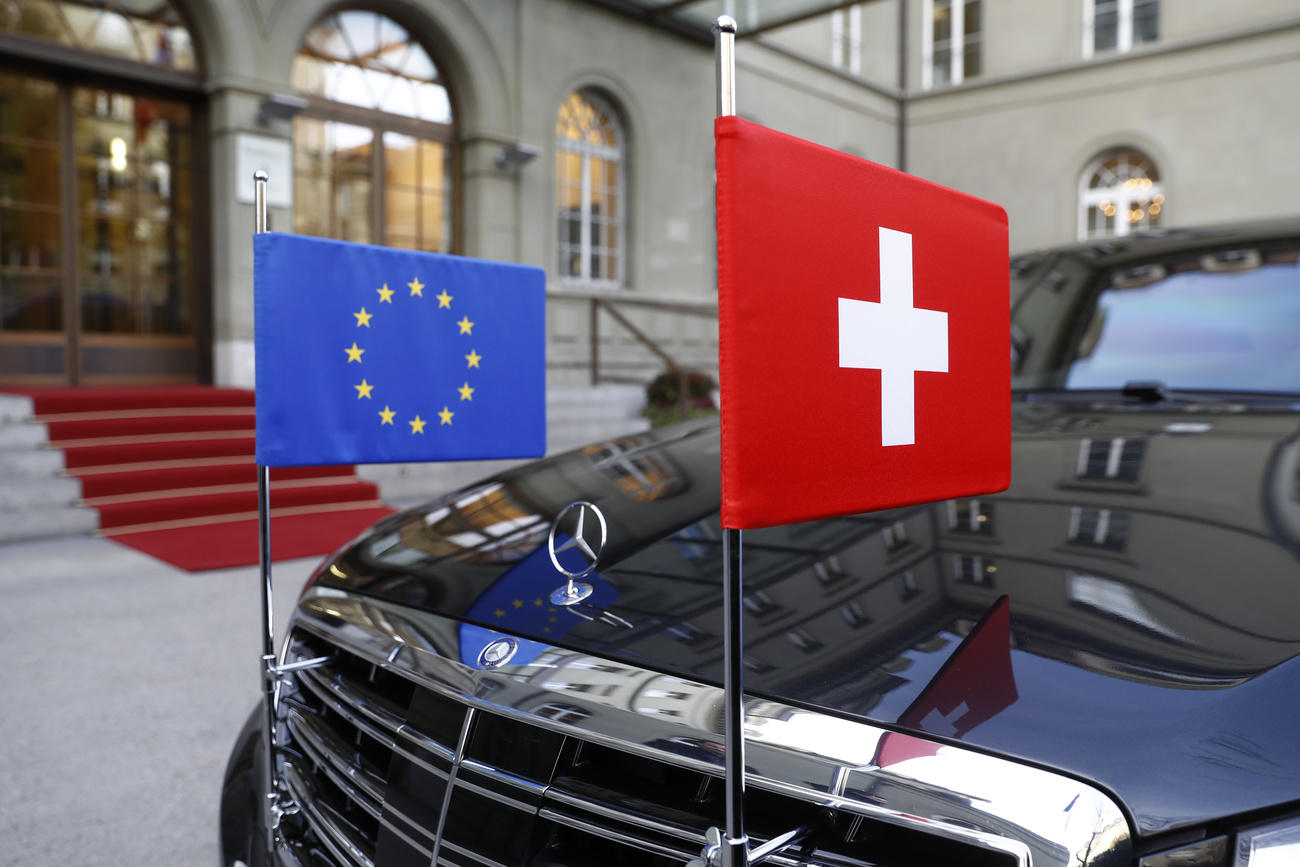
EU market access boosts Swiss wallets

On average, Swiss citizens are €2,914 (CHF3,315) richer each year thanks to access to the EU’s single market, according to the estimates of a German research group.
Though difficult to quantify in exact terms, the study published on Wednesday by the Bertelsmann FoundationExternal link estimates that belonging to the world’s largest economic zone has concrete economic benefits for all countries involved.
Switzerland – which is not a member of the EU, but which is part of the single market – is the top beneficiary, the group says. Its citizens are over CHF3,000 better off each year due to the trade and competition advantages that the market access implies.
Switzerland is followed by Luxembourg (€2,834) and Ireland (€1,894), while Belgians, Austrians and Dutch are also big beneficiaries (see chart). The average per capita boost for EU members is €840; Germany benefits most in absolute terms (€86 billion).
Income gains are lower in less competitive and more peripheral nations such as Spain, Portugal, and Greece, the report found. It also estimates that incomes in non-member countries like Israel or the US actually drop due to the existence of the single market.
Prosperity and Brexit
The internal market is the “main driver of our prosperity”, said Aart de Geus, president of the Bertelsmann Foundation. “Not everyone benefits in the same way, but everyone wins.”
The authors found that those gaining most advantages were “relatively small, but strong exporting nations” who profit from the absence of tariffs and other obstacles to trade. Increased competition also has a positive effect on production, costs, and prices.
This said, the German foundation also found that the internal market still has potential for further prosperity gains. This is particularly the case for the trade in services, where “more common standards and EU-wide rules for competition” would provide a boost.
As for Brexit, the report reckons that a complete British withdrawal from the single market will hit all members negatively. The UK itself (especially southern regions) would be hardest hit, followed by Ireland. Swiss income gains as a result of single market membership would drop by around €200 per capita post-Brexit, the report estimates.
Switzerland and the EU
Relations between Switzerland and the EU are complicated and have sometimes been testy, despite the important economic and social interlinkages between the two.
Since the Alpine nation voted narrowly not to join the union in 1992, relations have been run according to a plethora of bilateral agreements regulating key areas like transport, free movement of people, and of course trade.
The current state of play centres on negotiations to agree a comprehensive framework accord to bring all these bilateral issues under a single heading; talks have been ongoing since 2014, with the EU exerting increasing pressure on Bern to finalise the deal this year.
As for Brexit and its disruptions, the Swiss government recently approved a temporary agreement with Britain on access to the Swiss labour market. This will only apply in case of a disorderly departure of Britain from the European Union.

In compliance with the JTI standards
More: SWI swissinfo.ch certified by the Journalism Trust Initiative




























You can find an overview of ongoing debates with our journalists here . Please join us!
If you want to start a conversation about a topic raised in this article or want to report factual errors, email us at english@swissinfo.ch.